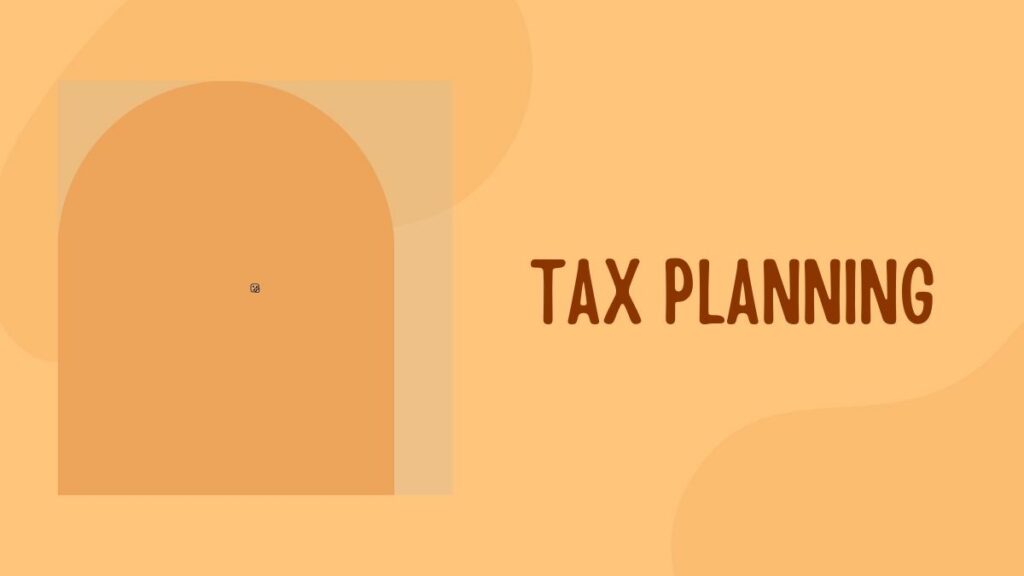Building and preserving personal wealth is not about earning; it requires smart financial planning. A significant part of this process entails managing taxes, which requires careful attention. Effective tax planning and compliance are crucial to maximising wealth and minimising additional financial liabilities.
Therefore, understanding the complexities of taxation laws, deductions, and credit can help you plan. By staying proactive and forward-thinking with taxation planning tactics, you can make the most of your financial opportunities and fulfil your monetary goals.
Understanding the Basics of Tax Planning
Tax planning indicates arranging financial strategies so you can maximise the tax benefits and dilute the tax liabilities. Effective tax planning guides you in analysing your income, investment options, expenses, and financial activities to utilise all the tax-saving opportunities.
Tax Planning Strategies
- Long-Term Tax Planning: From this term, you can easily understand that it indicates comprehensive tax planning, which is important in your financial goals and priorities. Thus, this plan aims to make the most of your earnings eventually.
- Short-Term Tax Planning: With this plan, you can reduce your tax liabilities within the present financial year. Thus, you must analyse your income and expenditure first, then opt for this plan.
- Purposive Tax Planning: This type of tax planning includes specific tax-saving goals. You need to plan your taxes by structuring investments, expenses, and income strategically to achieve your desired financial targets.
- Structural Tax Planning: When you adopt this plan, you must restructure your personal or business financing. It involves everything from tax deductions to the exemptions. In this case, you must integrate strategies like establishing tax-efficient entities, building partnerships, and minimising tax commitments.
- Marginal Tax Planning: By analysing the impacts of additional income or expenses, marginal tax planning helps optimise tax savings. When you improve the revenue within the lower tax brackets, you can reduce the entire tax.
Some Everyday Expenses for Tax Planning
Some expenses are eligible for certain tax benefits under different sections of the Income Tax Act. So, here you will learn how much you can save for which types of investments –
- Life Insurance Premium: With life insurance premiums, you can save up to Rs.1.5 lakh in a financial year under section 80C of the IT Act.
- Health Insurance: Under Section 80D of the IT Act, a maximum Rs.1 lakh deduction is available for health insurance premiums.
- Medical Expenses: For specific diseases like cancer, dementia, Parkinson’s, etc., one can claim a deduction of up to Rs.40,000 for oneself or dependents. This limit goes up to Rs.1 lakh for senior citizens. Similarly, the deduction of Rs.75,000 is applicable under Section 80DD for treating disabled dependents.
- Home Loan Interest Repayments: Under Sections 80C and 24B, your payment of home loan instalments is eligible for income tax deductions. The upper limit is Rs.1.5 lakh and Rs.2 lakh, respectively.
Tax Compliance Tips to Reduce Your Tax Burden
Moving on, here are some tax compliance tips for you to lower your income tax burden –
- First, evaluate your annual income to know the expected tax and liabilities.
- Keep your tax-related documents, such as receipts and bills or all types of transactions and investments.
- Ensure you have filed the income tax return within the due date every financial year.
- Check your tax liabilities regularly to make your tax-saving plans successful.
Wealth Maximisation Techniques with Tax-Saving Plans
Since the aim here is to maximise your wealth, here are some techniques you can use with tax-saving plans –
-
Unique Tax Planning
Your tax planning must be unique to the entire financial strategy. So, it would help if you pursue your economic goals, such as purchasing a home, retirement, child education plans, and investing in other funds. That means it creates a path to achieve larger financial objectives, resulting in impactful tax savings and more considerable wealth accumulation.
-
Learn To Manage Your Finance And Taxation
You need in-depth knowledge before venturing into tax planning and personal wealth management techniques. Thus, you must know the new tax laws, deductions, exemption rules, and investment opportunities. Also, consider reading tax-related blogs and news, and try to join finance-related webinars and seminars.
-
Choose The Right Investment Plans
There are several tax-saving investment plans available in India. For instance, consider investing in pension schemes, tax-saving fixed deposits, etc. Carefully choose which one is the most suitable for you.
-
Ensure Your Investment Option Is Aligned With Your Financial Goal
Choose an investment option which aligns with your financial objectives. For instance, if you aim to build a corpus for your retired life, you should invest in the National Pension Systems. This way, you can create a purpose-driven approach to wealth maximisation.
-
Regularly Analyse Your Investments
The tax laws and investment scenarios are ever-evolving. So, if you think your current tax-saving option will work in the future, you’re wrong. Thus, you must conduct regular market research to assess and review current tax-saving options and investment plans. Therefore, you should take the steps to balance your investment, wealth management, and tax savings.
Conclusion
Implementing tax planning and wealth management techniques helps you optimise your financial and business goals. This can lower your tax burden, provide convenient investment options, and achieve financial stability.
So, are you willing to enrol in a professional finance management course? Don’t worry! The ACCA Course from Imarticus Learning. With these courses, you will get plenty of options to learn taxation, investment opportunities, wealth management techniques, and more.

